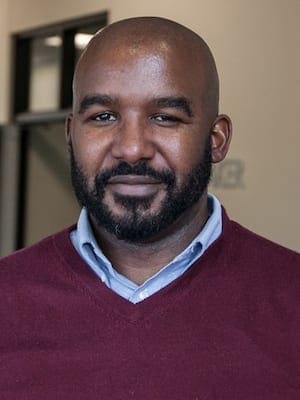There are multiple issues on which the U.S. Supreme Court has made rulings or will make rulings in the very near future.
I do not wish to address the specific cases, but rather the dominant attitude of separation that seems to be regularly espoused by some Christians.
This attitude leads people to avoid associating or collaborating with those who don’t believe as they believe on particular subjects.
Although political involvement has been the hallmark of the church throughout history, in its current incarnation it seems like for some Christians the goal of political involvement is to make sure that the only rights that are considered legitimate are those that conform to their worldview.
I have to ask myself, “Was it God’s goal for Christians to legislate their faith on others or was it God’s hope that Christians would model a consistent, loving relationship with others that is built on the example of Christ so that people would be encouraged to enter this type of relationship with their Creator?”
I am not saying that Christians should give up their rights or beliefs to make someone else comfortable.
I am saying that Christians can’t force their system of belief on people that don’t see the benefits of participating in that system.
One of the most prolific writers of the 20th century was James Baldwin who said, “Not everything that is faced can be changed, but nothing can be changed until it is faced.”
Baldwin used his writings to bring about positive change in how people of differing ethnicities and perspectives viewed each other.
He grew up in the church, even becoming a minister while still in his teens. But after experiencing regular beatings at the hands of his stepfather who used Scripture to justify his wrath, and watching his mother and siblings experience physical abuse, James’ attitude toward God changed.
He no longer saw God as loving and caring. He only saw God as vengeful, hurtful and full of wrath.
Through his writings, he was able to be honest about the pain he experienced at the hands of people who claimed God as their focus.
He was able to be honest about the differences in what he was taught about faith in God and how people did or didn’t live out those faith principles in their own lives.
He also reflected on how churches could be places of pain and separation instead of healing and reconciliation.
His writings chronicled his struggles, seeking to answer the question of why anyone would want to experience Christian faith if Christians don’t exhibit the traits of grace and love within our own lives.
Baldwin’s writings make we wonder what can be done to change the reputation that the church is rapidly acquiring? A reputation that says we aren’t exhibiting the characteristics of the one we claim to follow.
Simply put, we have to be honest about our practices and the affect that they have on our witness for God.
We have to be honest about our fears of losing influence and becoming irrelevant as it relates to our place in this culture.
We have to be honest about our prejudices toward people who don’t see things exactly like we do and who understand God’s desires differently than we do.
Finally, we have to be honest about how all of this affects how people see and understand God.
Being honest can help us identify where we need to change and become better witnesses to the grace and love we claim. This would be a much more effective witness for our Savior.
 Terrell Carter is a staff member for Central Baptist Theological Seminary and an associate with Pinnacle Leadership Associates. He is the author of “Walking the Blue Line: A Police Officer Turned Community Activist Provides Solutions to the Racial Divide” and the forthcoming book, “Machiavellian Ministry: What Faith-Filled Leaders Can Learn from a Faithless Politician.” His writings can be viewed at his website, and you can follow him on Twitter @tcarterstl.
Terrell Carter is a staff member for Central Baptist Theological Seminary and an associate with Pinnacle Leadership Associates. He is the author of “Walking the Blue Line: A Police Officer Turned Community Activist Provides Solutions to the Racial Divide” and the forthcoming book, “Machiavellian Ministry: What Faith-Filled Leaders Can Learn from a Faithless Politician.” His writings can be viewed at his website, and you can follow him on Twitter @tcarterstl.
A pastor, author and educator living in St. Louis, Missouri, he is the author of several books, including The Gospel According to Broadway and Taking Apart Bootstrap Theology: Gospel of Generosity and Justice.

